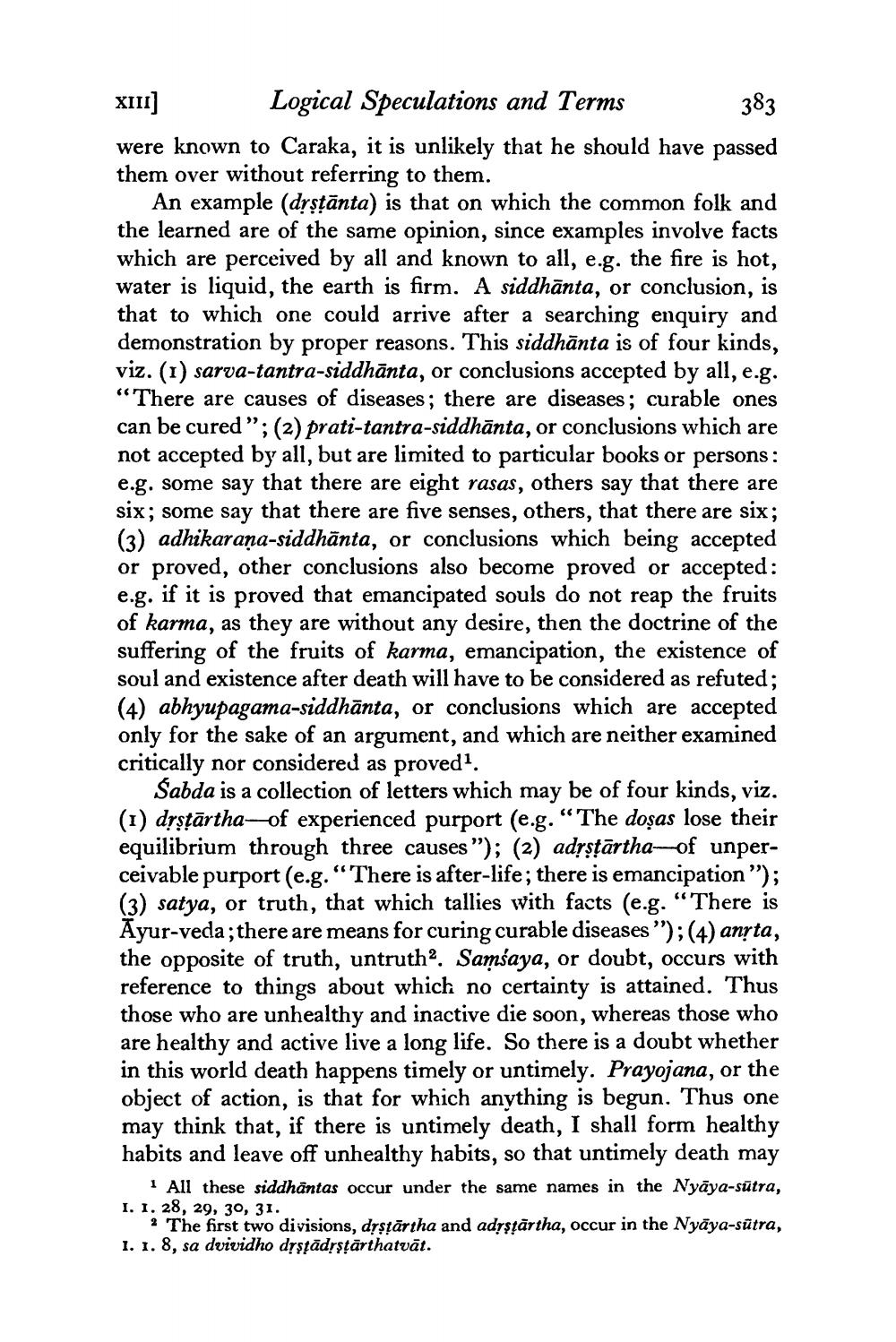________________
XIII]
Logical Speculations and Terms
383
were known to Caraka, it is unlikely that he should have passed them over without referring to them.
An example (drṣṭānta) is that on which the common folk and the learned are of the same opinion, since examples involve facts which are perceived by all and known to all, e.g. the fire is hot, water is liquid, the earth is firm. A siddhanta, or conclusion, is that to which one could arrive after a searching enquiry and demonstration by proper reasons. This siddhanta is of four kinds, viz. (1) sarva-tantra-siddhānta, or conclusions accepted by all, e.g. "There are causes of diseases; there are diseases; curable ones can be cured"; (2) prati-tantra-siddhanta, or conclusions which are not accepted by all, but are limited to particular books or persons: e.g. some say that there are eight rasas, others say that there are six; some say that there are five senses, others, that there are six; (3) adhikaraṇa-siddhānta, or conclusions which being accepted or proved, other conclusions also become proved or accepted: e.g. if it is proved that emancipated souls do not reap the fruits of karma, as they are without any desire, then the doctrine of the suffering of the fruits of karma, emancipation, the existence of soul and existence after death will have to be considered as refuted; (4) abhyupagama-siddhānta, or conclusions which are accepted only for the sake of an argument, and which are neither examined critically nor considered as proved1.
Sabda is a collection of letters which may be of four kinds, viz. (1) dṛṣṭārtha-of experienced purport (e.g. "The dosas lose their equilibrium through three causes"); (2) adṛṣṭārtha-of unperceivable purport (e.g. "There is after-life; there is emancipation"); (3) satya, or truth, that which tallies with facts (e.g. "There is Ayur-veda; there are means for curing curable diseases"); (4) anṛta, the opposite of truth, untruth2. Samsaya, or doubt, occurs with reference to things about which no certainty is attained. Thus those who are unhealthy and inactive die soon, whereas those who are healthy and active live a long life. So there is a doubt whether in this world death happens timely or untimely. Prayojana, or the object of action, is that for which anything is begun. Thus one may think that, if there is untimely death, I shall form healthy habits and leave off unhealthy habits, so that untimely death may
1 All these siddhantas occur under the same names in the Nyaya-sutra, I. I. 28, 29, 30, 31.
2 The first two divisions, dṛṣṭārtha and adṛṣṭārtha, occur in the Nyaya-sūtra, 1. 1. 8, sa dvividho dṛṣṭādṛṣṭārthatvāt.




